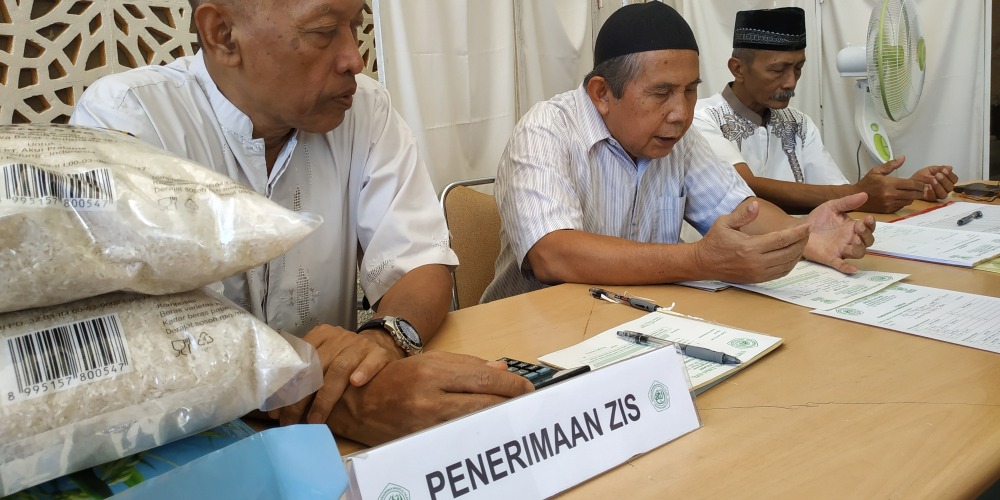Despite the pandemic, zakat collection in Indonesia expected to top 2019 thanks to digital payments
JAKARTA – Despite the pandemic, the total value of zakat collected in Indonesia this year is expected to increase thanks to digital payment channels.
National zakat body BAZNAS has been working with more than 80 digital partners including fintechs for payment services, e-commerce, social crowdfunding, and AI.
The agency expects zakat collection via its BAZNAS Central to increase by 30% and exceed the 400 billion rupiah ($28.4 million) target this year, up from the 290 billion rupiah collected in 2019. Its forecast is more than 12 trillion rupiah for the total national collection, from 10.2 trillion rupiah last year.
Irfan Syauqi Beik, Director of Utilization and Distribution at BAZNAS, told Salaam Gateway he estimates that more than 30% of zakat payments made this year so far were transacted digitally, more than double the 14% in 2019.
He cites three drivers: increasing awareness within communities to help each other, more public trust in zakat management agencies, and the ease or comfort to pay the obligatory alms seamlessly using technology.
“We all know the pandemic has brought so many negative impacts such as layoffs, GDP contraction and so on but surprisingly zakat payments are rising,” said the BAZNAS official.
“There are still groups of people that can survive economically, doing pretty well in certain industries and increase their zakat payment.”
The baby boomer generation paid up to 500 million rupiah in zakat during the pandemic,” said Irfan.
Millennials, who pay comparatively smaller amounts of 200,000 to 300,000 rupiah each, are increasingly paying zakat online.
COVID-19 movement restrictions have not only increased zakat payments through digital channels but also upped their distribution. BAZNAS distributed 636,895,452,954 rupiah (approximately $43 million) to more than 5 million beneficiaries by the end of August.
BAZNAS has been leading the innovation in zakat management in the country since 2018, including its online COVID-19 information center focused on zakat-related matters. It has also flexed its social media muscles, implementing large-scale campaigns for both local and international audiences, notably during the pandemic.
The national zakat agency this year also started distribution amid the pandemic for programmes categorized as health and socioeconomic emergencies.
Health emergency projects include the distribution of masks, hand sanitizers, and personal protective equipment, as well as disinfecting public places, washing carpets in mosques, and distribution of food packages.
Under the socioeconomic emergency programme, social funds are channelled to beneficiaries in need including in the form of cash for work, cash assistance, and cooked food.
“Also, following the rise of poverty cases in new forms due to COVID-19, we expect future distribution to handle local poverty. The programmes are expected to cover the cities where the respective authorities have implemented local lockdowns,” said Irfan.
(Reporting by Yosi Winosa; Editing by Emmy Abdul Alim emmy.abdulalim@salaamgateway.com)
© SalaamGateway.com 2020 All Rights Reserved
